@thi.ng/hiccup-svg
[!NOTE] This is one of 190 standalone projects, maintained as part of the @thi.ng/umbrella monorepo and anti-framework.
🚀 Please help me to work full-time on these projects by sponsoring me on GitHub. Thank you! ❤️
About
SVG element functions for @thi.ng/hiccup & related tooling.
Important
The functions provided here do produce valid hiccup elements, but since none of them make use of (or support) the global hiccup / hdom context object, they can ONLY be invoked directly, i.e. they MUST be called like:
import { circle, svg } from "@thi.ng/hiccup-svg";
// correct (direct invocation)
svg({}, circle([0, 0], 100, { fill: "red" }));
// incorrect / unsupported (lazy evaluation)
[svg, {}, [circle, [0, 0], 100, { fill: "red" }]]
SVG conversion of @thi.ng/geom & @thi.ng/hiccup-canvas shape trees
Since v2.0.0 this package provides a conversion utility to translate the more compact syntax used by @thi.ng/geom and @thi.ng/hiccup-canvas shape trees (designed for more performant realtime / canvas drawing) into a SVG serializable hiccup format.
The convertTree() function takes a pre-normalized hiccup tree of geom/hiccup-canvas shape definitions and recursively converts it into an hiccup flavor which is ready for SVG serialization (i.e. using stringified geometry attribs). This conversion also involves translation & re-organization of various attributes. This function returns a new tree. The original remains untouched, as will any unrecognized tree / shape nodes (those will be transferred as-is to the result tree). See example below.
Tree conversion can be implicitly triggered by providing a __convert: true attribute to the root svg() element. This conversion also supports the __prec control attribute which can be used (on a per-shape basis) to control the formatting used for various floating point values (except color conversions). Child shapes (of a group) inherit the precision setting of their parent.
import { svg } from "@thi.ng/hiccup-svg";
// create SVG root element and convert body
svg(
{ width: 100, height: 100, __convert: true, __prec: 3 },
["rect", { fill: [1, 0, 0] }, [1.2345, -1.2345], 100, 100]
)
// [
// 'svg',
// {
// version: '1.1',
// xmlns: 'http://www.w3.org/2000/svg',
// 'xmlns:xlink': 'http://www.w3.org/1999/xlink',
// width: 100,
// height: 100
// },
// ['rect', { fill: '#ff0000', x: '1.234', y: '-1.234', width: '100', height: '100' }]
// ]
Automatic attribute conversions
Colors
Since v3.1.0:
Color conversions are only applied to fill and stroke attributes and color stops provided to linearGradient(), radialGradient()
String
String color attribs prefixed with $ are replaced with url(#...) refs (e.g. to refer to gradients), else used as is (untransformed)
Number
Interpreted as ARGB hex value:
{ fill: 0xffaabbcc } => { fill: "#aabbcc" }
Array
Interpreted as float RGB(A):
{ fill: [1, 0.8, 0.6, 0.4] } => { fill: "rgba(255,204,153,0.40)" }
@thi.ng/color values
Converted to CSS color strings:
{ fill: hcya(0.1666, 1, 0.8859) } => { fill: "#ffff00" }
Transforms
(i.e. transform, rotate, scale, translate)
If an element has a transform attrib, conversion of the other transformation attribs will be skipped, else the values are assumed to be either strings or:
transform: 6-element numeric array (2x3 matrix in column major order)translate: 2-element arrayrotate: number (angle in radians)scale: number (uniform scale) or 2-elem array
If no transform, but others are given, the resulting transformation order will always be TRS. Any string values will be used as-is and therefore need to be complete, e.g. { rotate: "rotate(60)" }
Status
STABLE - used in production
Search or submit any issues for this package
Installation
yarn add @thi.ng/hiccup-svg
ES module import:
<script type="module" src="https://cdn.skypack.dev/@thi.ng/hiccup-svg"></script>
For Node.js REPL:
const hiccupSvg = await import("@thi.ng/hiccup-svg");
Package sizes (brotli'd, pre-treeshake): ESM: 2.46 KB
Dependencies
Usage examples
Several projects in this repo's /examples directory are using this package:
| Screenshot | Description | Live demo | Source |
|---|---|---|---|
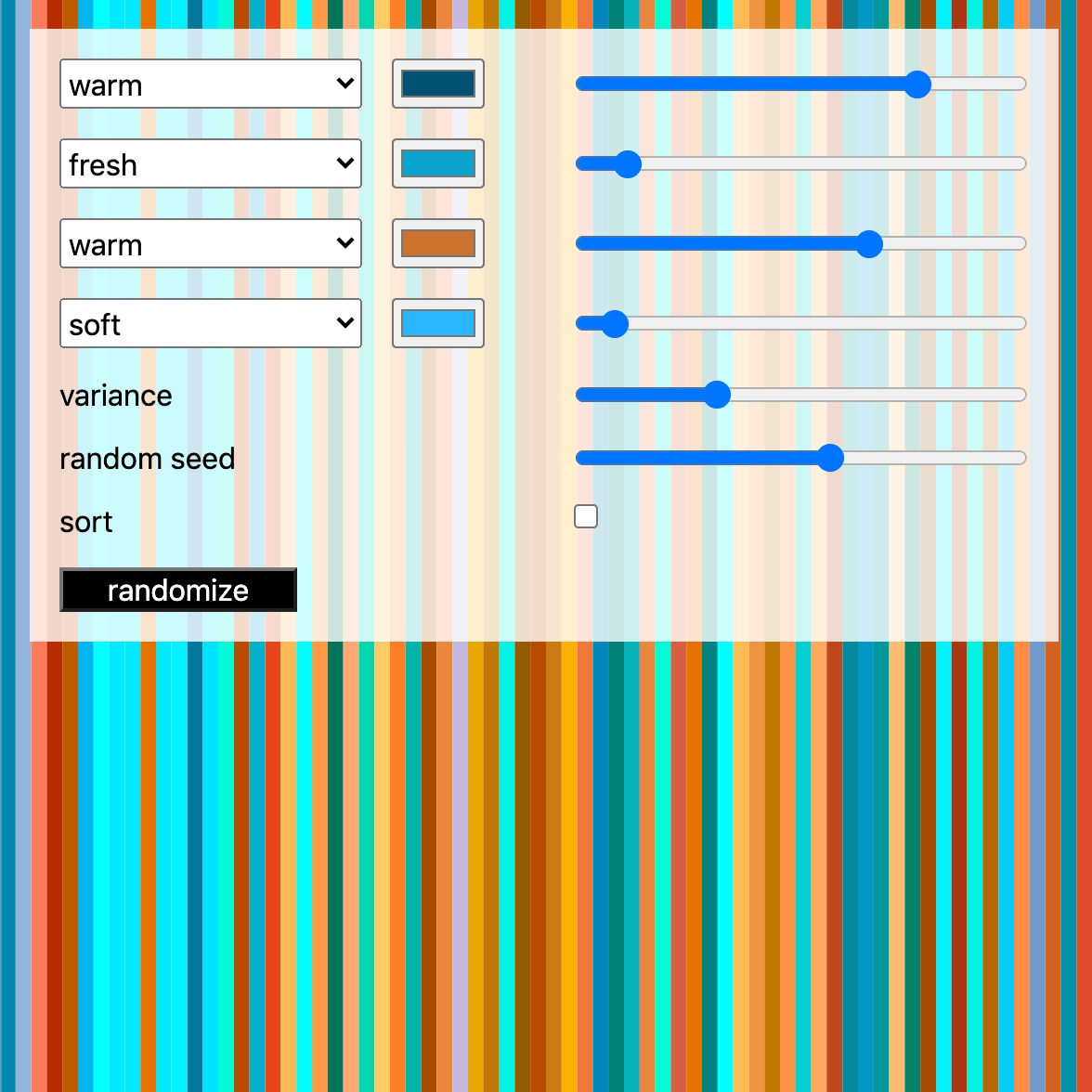 | Probabilistic color theme generator | Demo | Source |
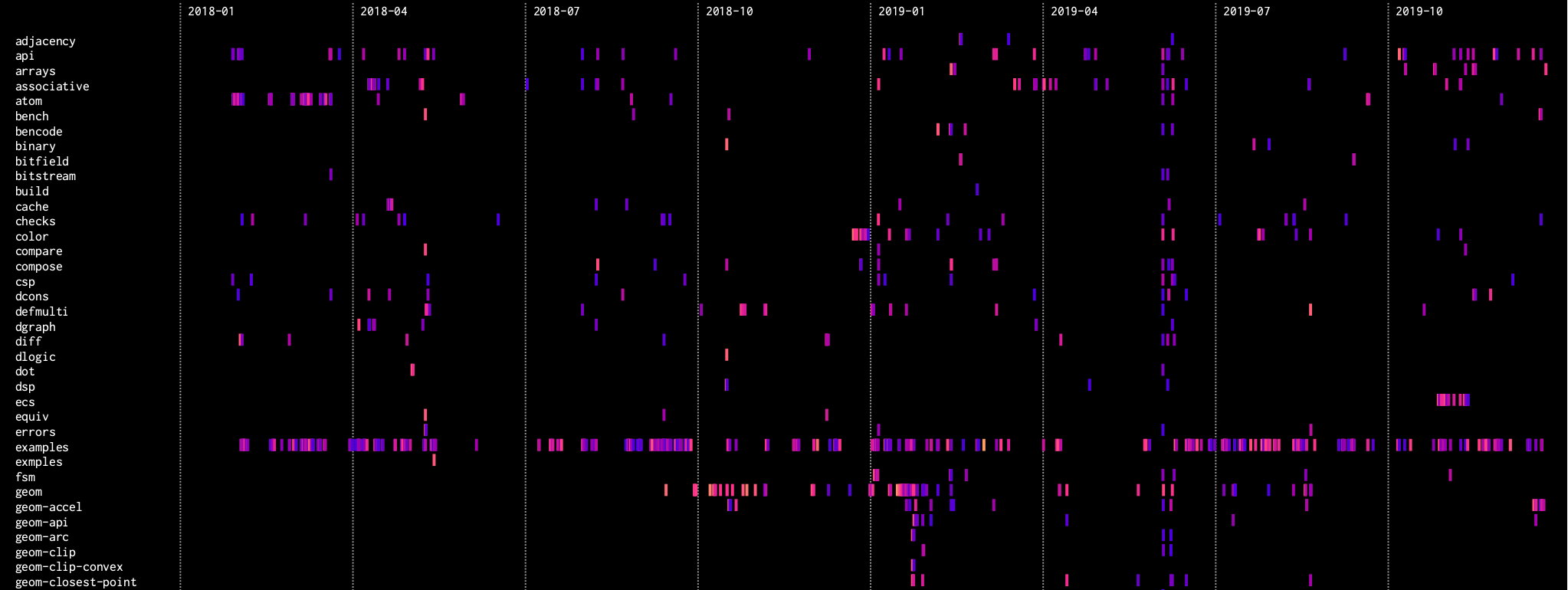 | Heatmap visualization of this mono-repo's commits | Source | |
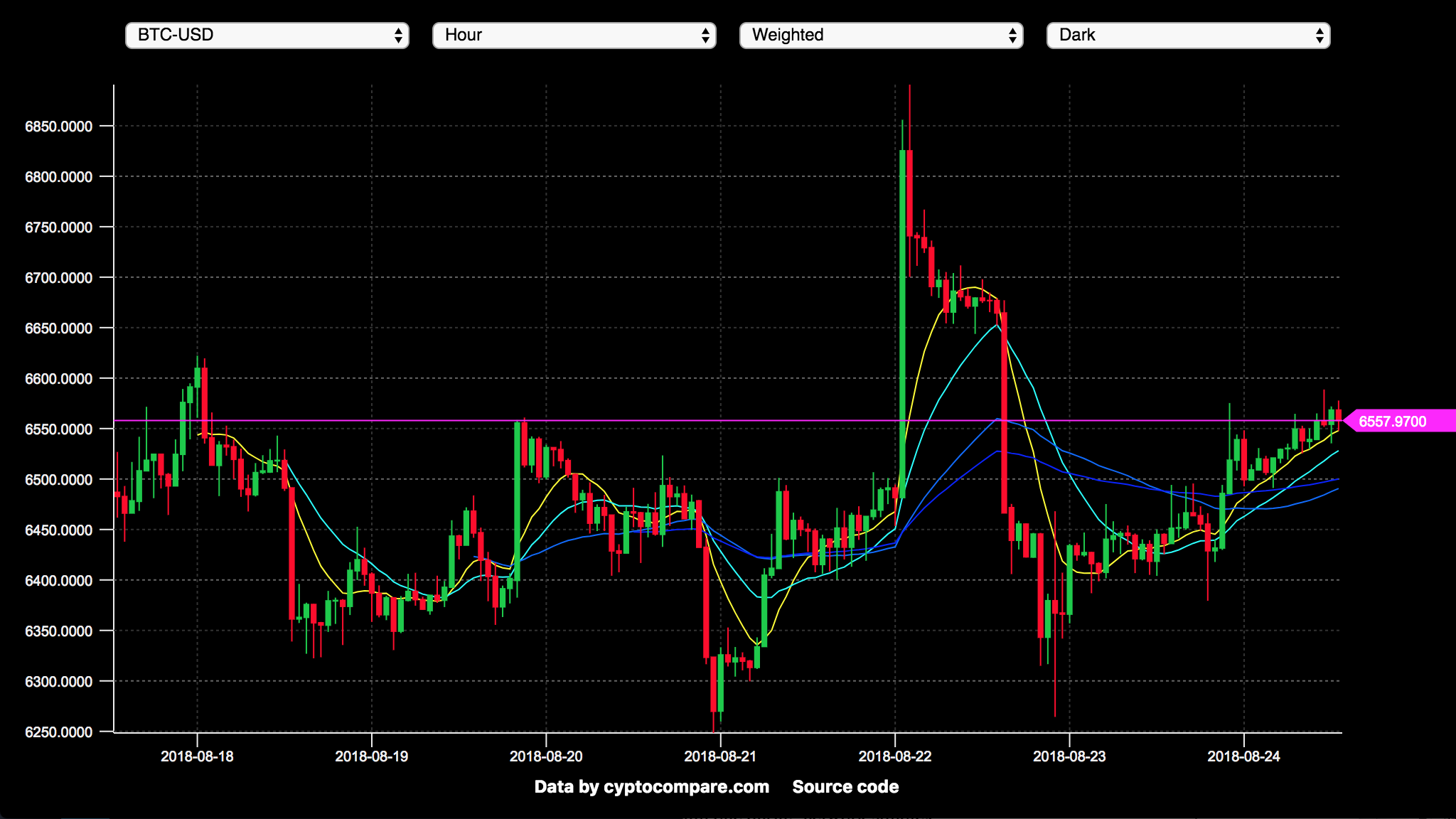 | Basic crypto-currency candle chart with multiple moving averages plots | Demo | Source |
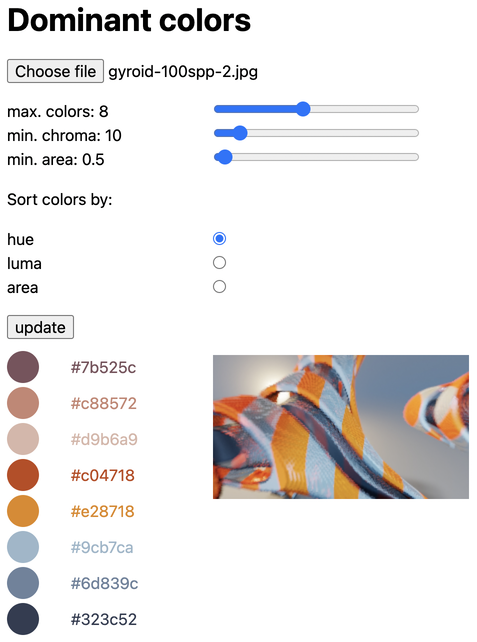 | Color palette generation via dominant color extraction from uploaded images | Demo | Source |
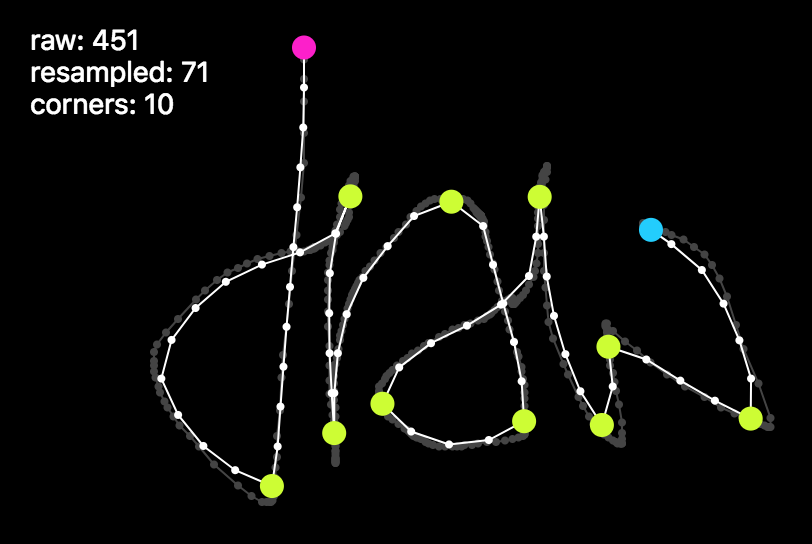 | Mouse gesture / stroke analysis, simplification, corner detection | Demo | Source |
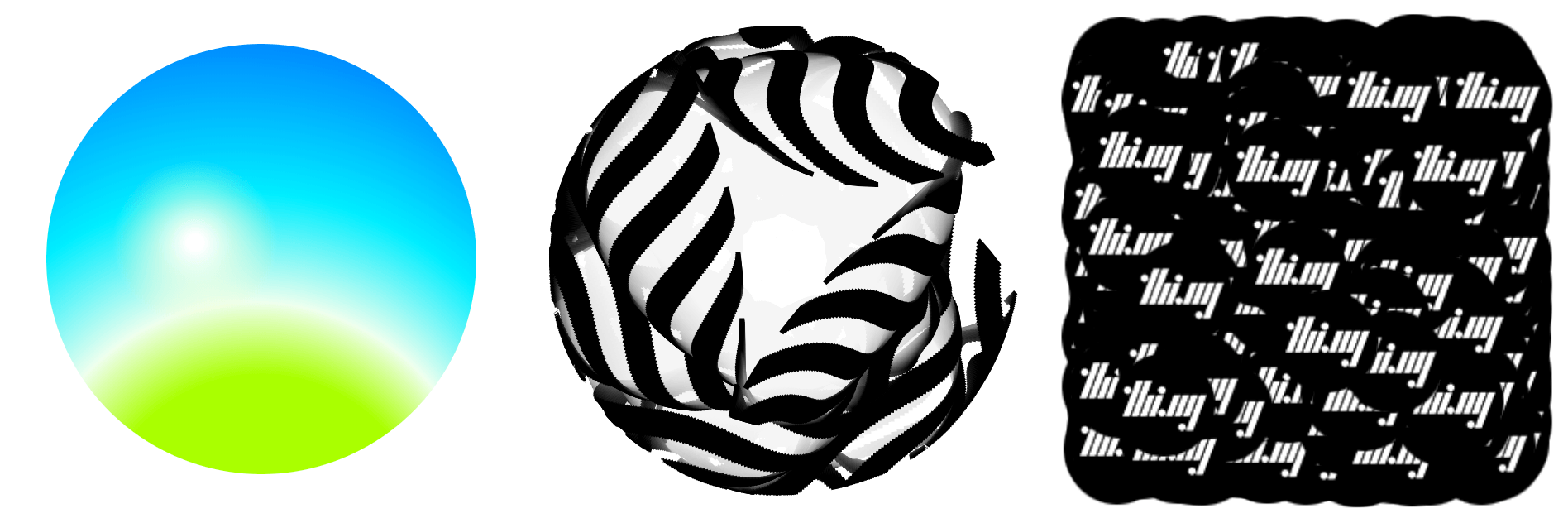 | Various hdom-canvas shape drawing examples & SVG conversion / export | Demo | Source |
 | CLI util to visualize umbrella pkg stats | Source | |
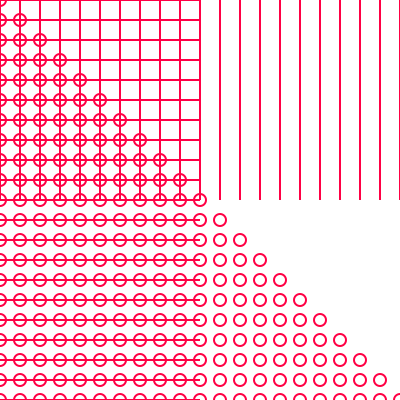 | Generate SVG using pointfree DSL | Source | |
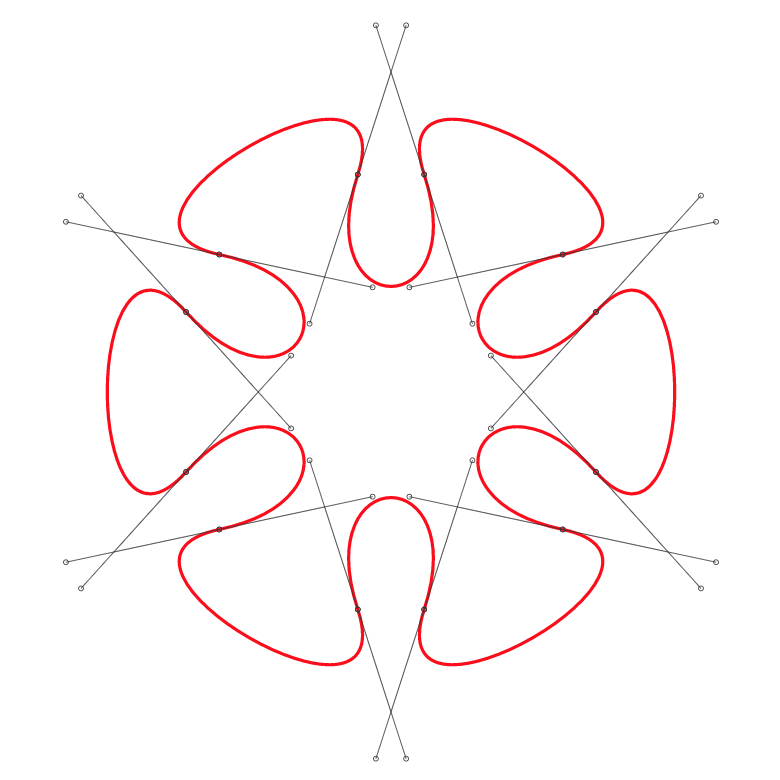 | Polygon to cubic curve conversion & visualization | Demo | Source |
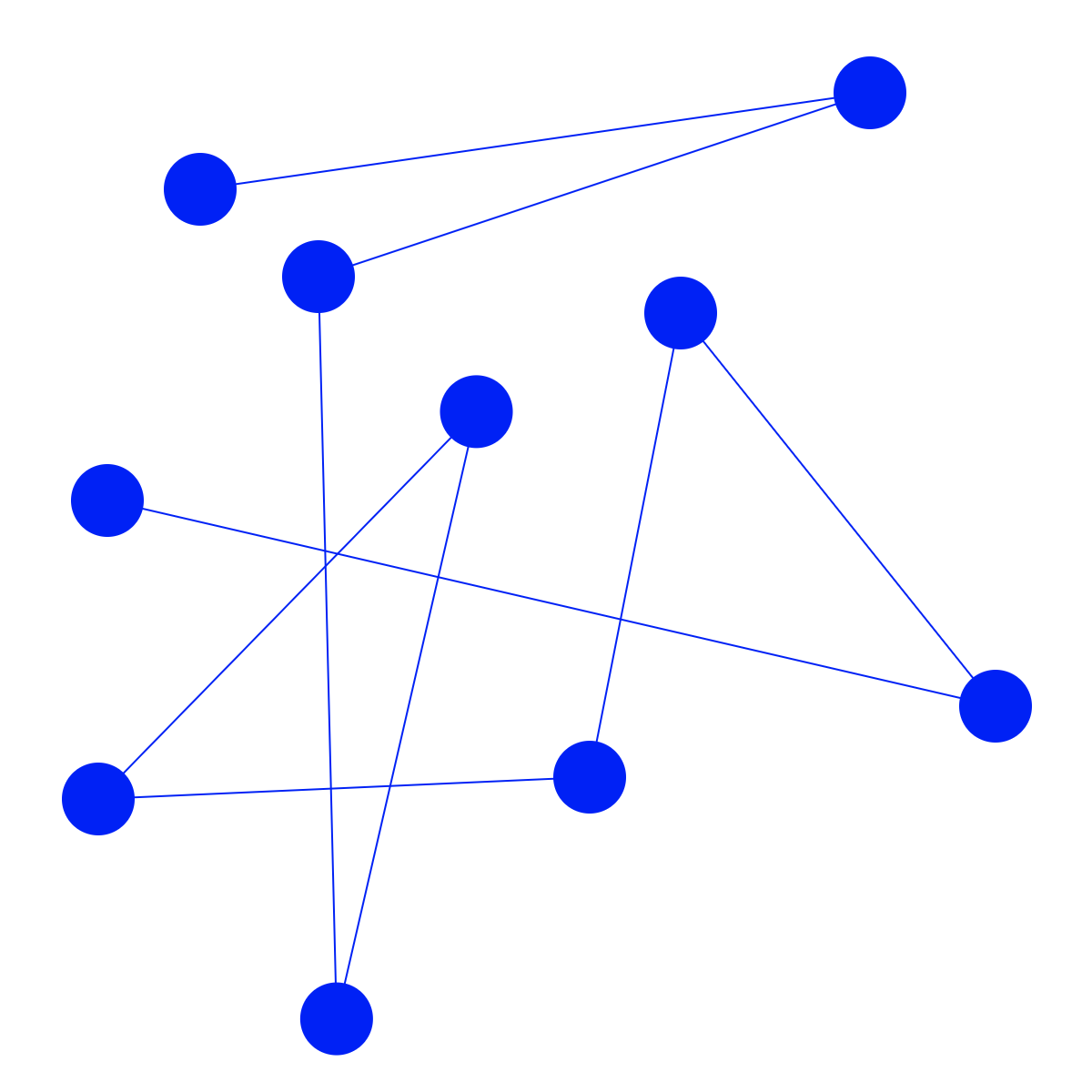 | rdom powered SVG graph with draggable nodes | Demo | Source |
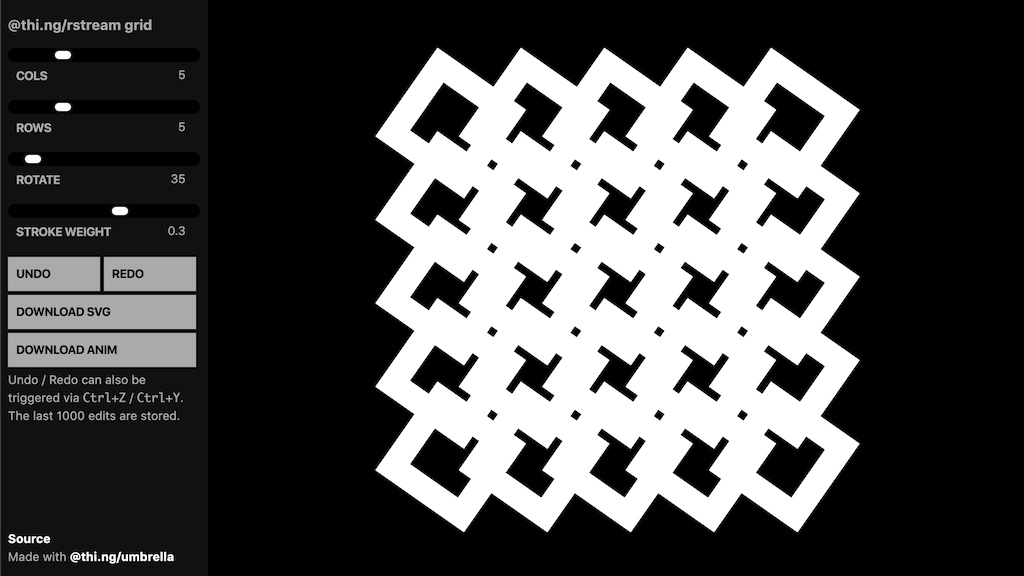 | Interactive grid generator, SVG generation & export, undo/redo support | Demo | Source |
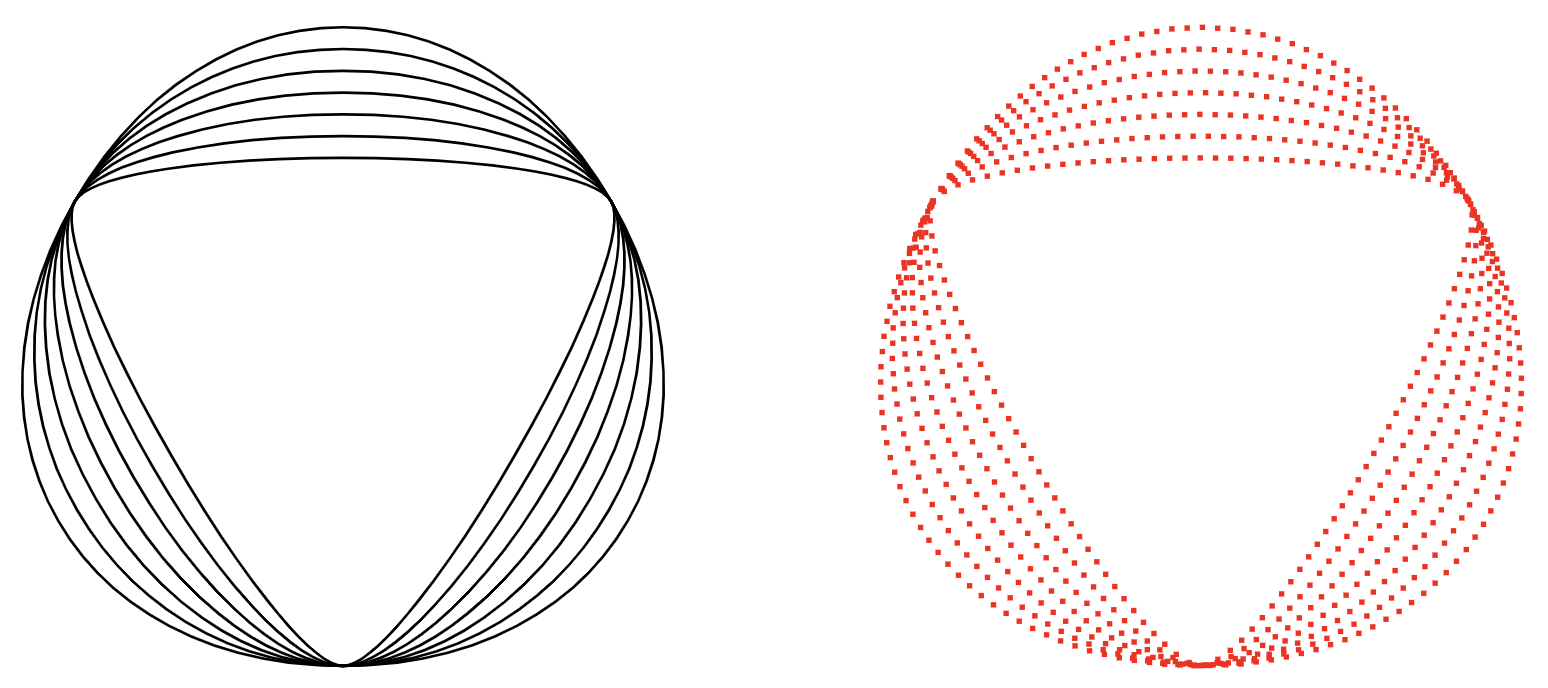 | SVG path parsing & dynamic resampling | Demo | Source |
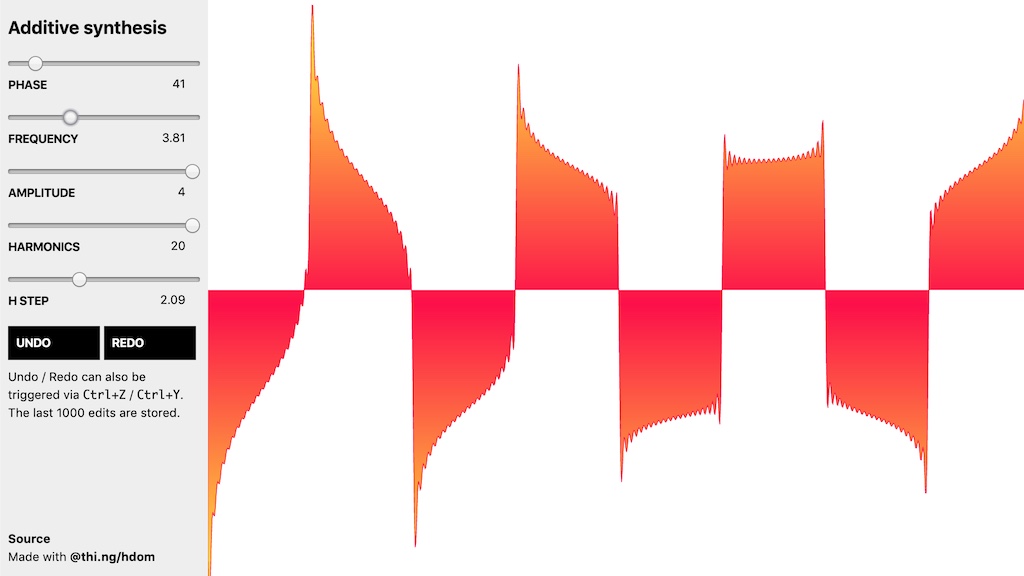 | Additive waveform synthesis & SVG visualization with undo/redo | Demo | Source |
API
import * as svg from "@thi.ng/hiccup-svg";
import { serialize } from "@thi.ng/hiccup";
import * as fs from "fs";
fs.writeFileSync(
"hello.svg",
serialize(
svg.svg(
{ width: 100, height: 100 },
svg.defs(svg.linearGradient("grad", [0, 0], [0, 1], [[0, "red"], [1, "blue"]])),
svg.circle([50, 50], 50, { fill: "url(#grad)" }),
svg.text([50, 55], "Hello", { fill: "white", "text-anchor": "middle" })
)
));
Minimal example showing SVG conversion of a hiccup-canvas scene (also see @thi.ng/geom for another compatible approach):
import { svg } from "@thi.ng/hiccup-svg";
import { serialize } from "@thi.ng/hiccup";
import { writeFileSync } from "node:fs";
// scene tree defined for hiccup-canvas
const scene = [
["defs", {},
["radialGradient",
{ id: "bg", from: [150, 280], to: [150, 300], r1: 300, r2: 100 },
[[0, "#07f"], [0.5, "#0ef"], [0.8, "#efe"], [1, "#af0"]]],
["radialGradient",
{ id: "sun", from: [110, 120], to: [110, 120], r1: 5, r2: 50 },
[[0, "#fff"], [1, "rgba(255,255,192,0)"]]]
],
["circle", { fill: "$bg" }, [150, 150], 130],
["circle", { fill: "$sun" }, [110, 120], 50],
];
writeFileSync(
"radialgradient.svg",
serialize(
svg({ width: 300, height: 300, __convert: true }, scene)
)
);
Result:
<svg version="1.1"
xmlns="http://www.w3.org/2000/svg"
xmlns:xlink="http://www.w3.org/1999/xlink" width="300" height="300">
<defs>
<radialGradient id="bg" fx="150.00" fy="280.00" cx="150.00" cy="300.00" fr="300.00" r="100.00" gradientUnits="userSpaceOnUse">
<stop offset="0" stop-color="#07f"/>
<stop offset="0.5" stop-color="#0ef"/>
<stop offset="0.8" stop-color="#efe"/>
<stop offset="1" stop-color="#af0"/>
</radialGradient>
<radialGradient id="sun" fx="110.00" fy="120.00" cx="110.00" cy="120.00" fr="5.00" r="50.00" gradientUnits="userSpaceOnUse">
<stop offset="0" stop-color="#fff"/>
<stop offset="1" stop-color="rgb(255,255,192)" stop-opacity="0"/>
</radialGradient>
</defs>
<circle cx="150.00" cy="150.00" r="130.00" fill="url(#bg)"/>
<circle cx="110.00" cy="120.00" r="50.00" fill="url(#sun)"/>
</svg>
Authors
If this project contributes to an academic publication, please cite it as:
@misc{thing-hiccup-svg,
title = "@thi.ng/hiccup-svg",
author = "Karsten Schmidt",
note = "https://thi.ng/hiccup-svg",
year = 2016
}
License
© 2016 - 2024 Karsten Schmidt // Apache License 2.0



